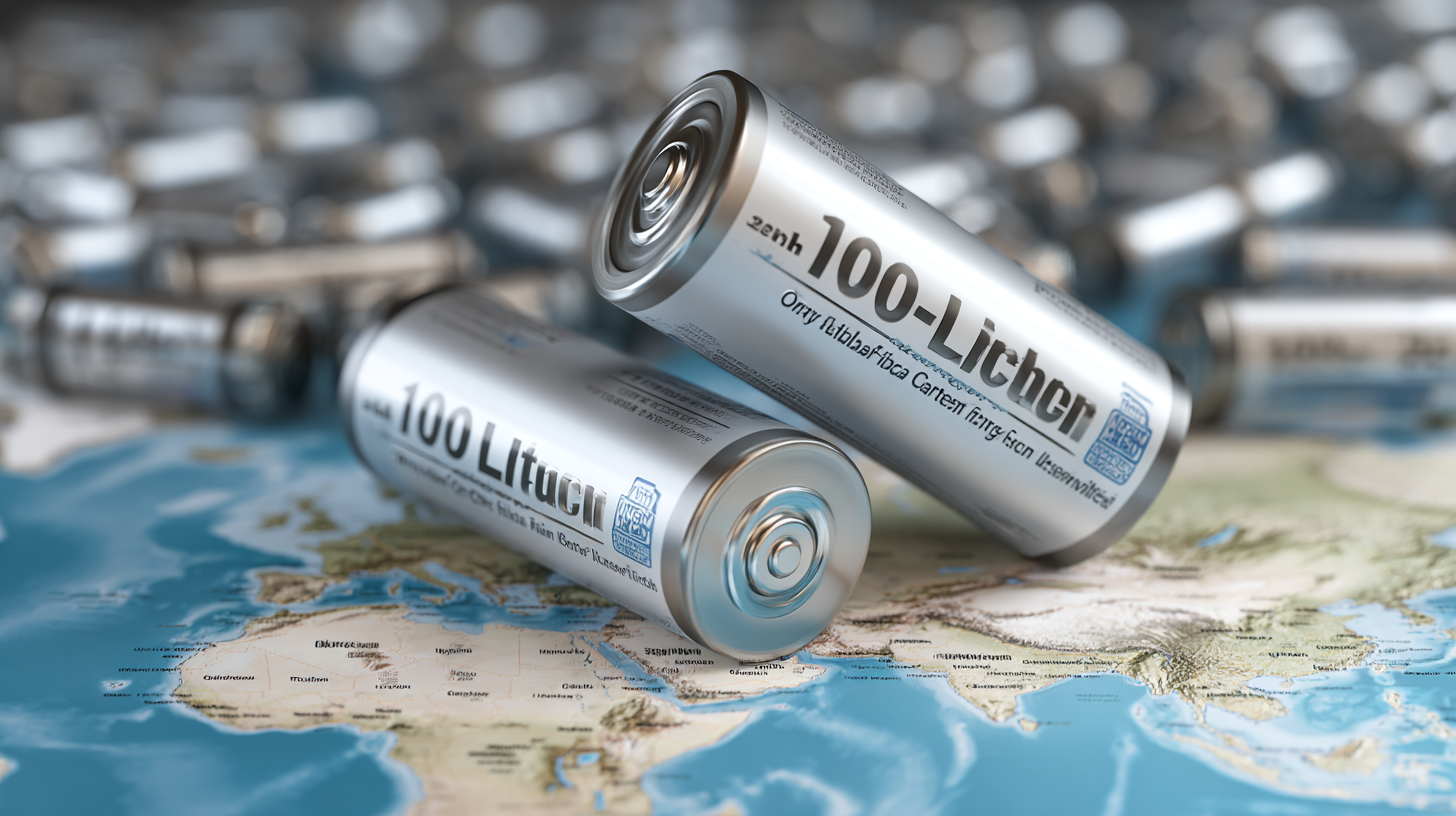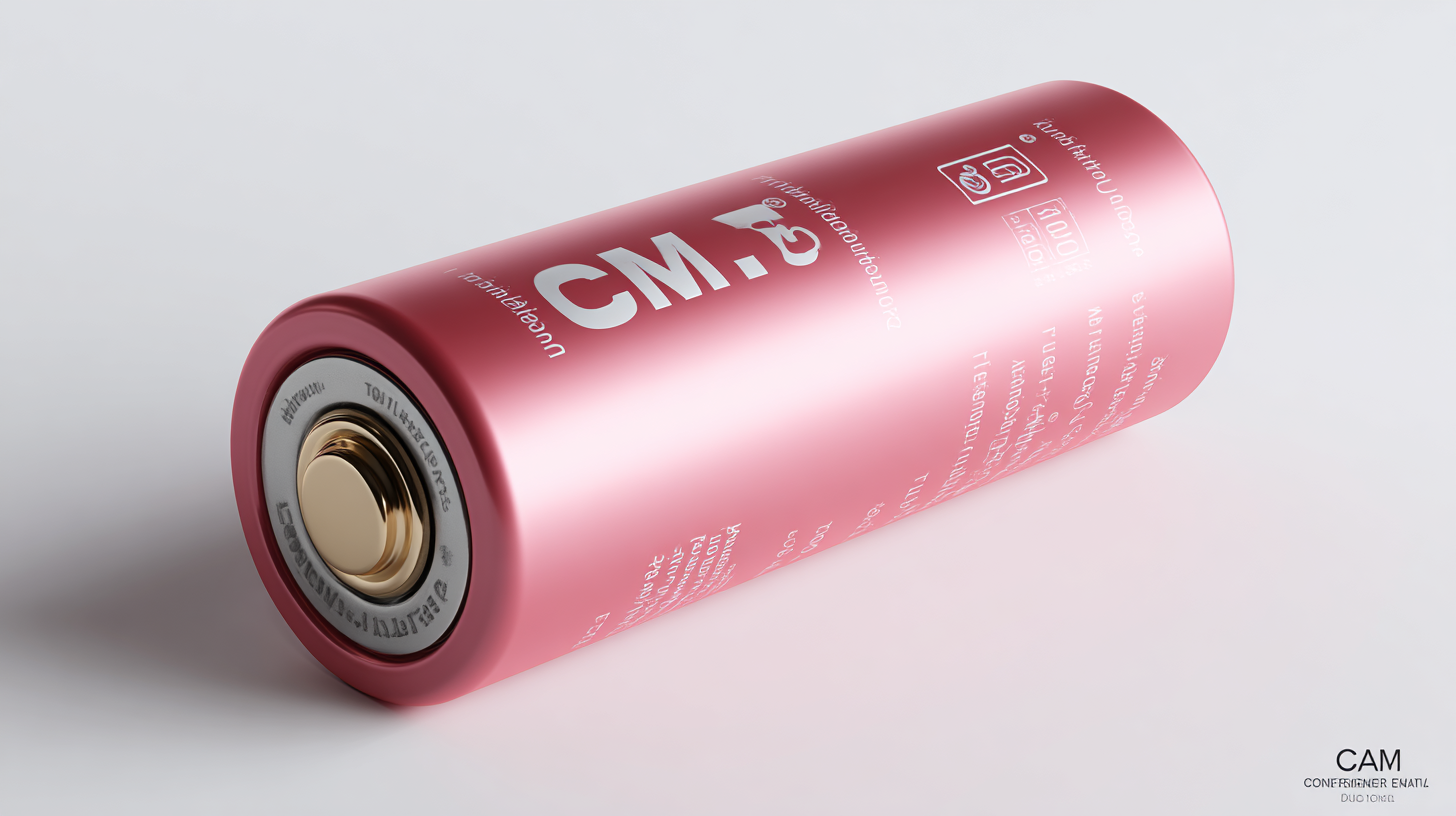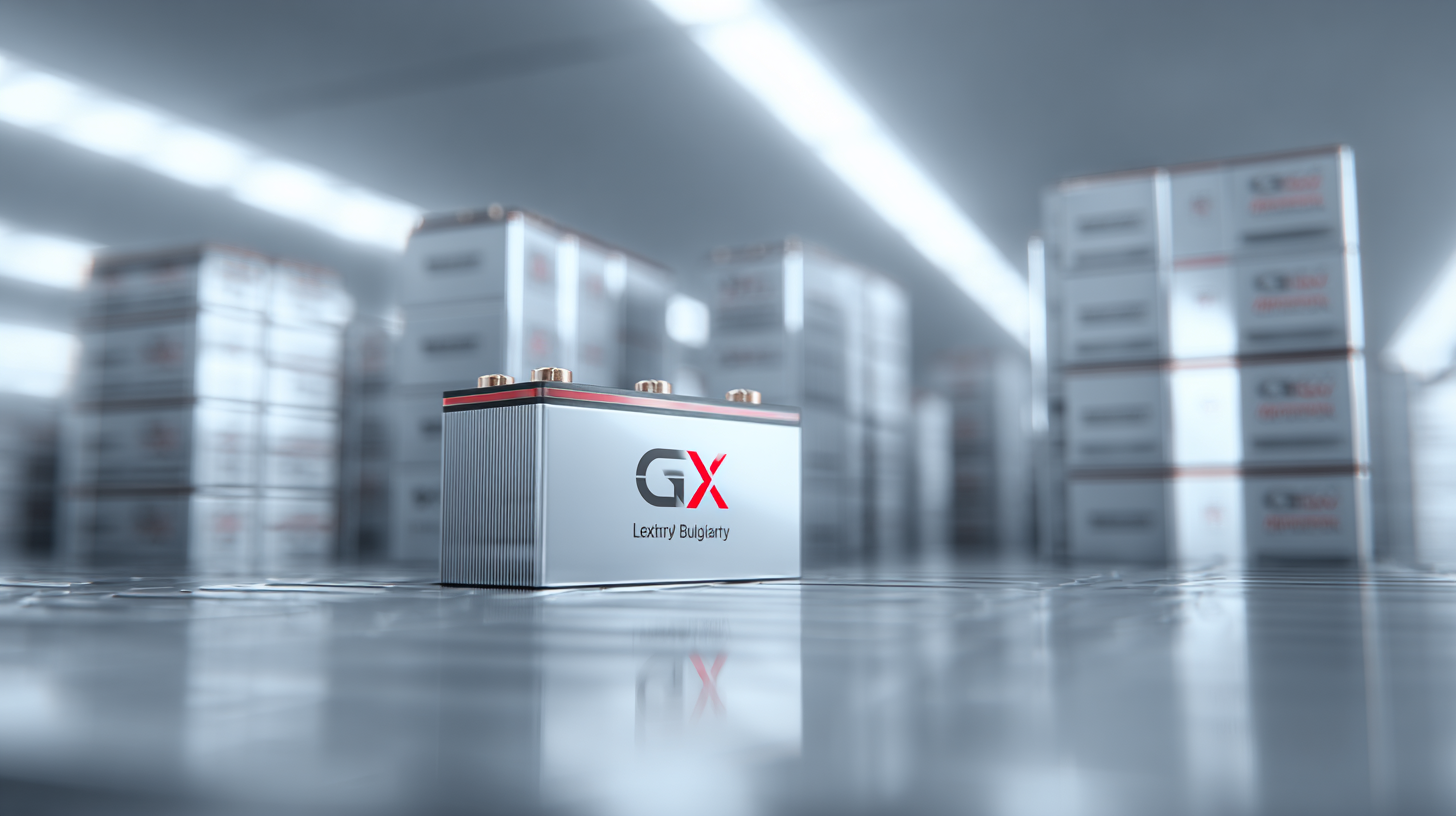 In today's rapidly evolving energy landscape, the demand for high-quality 100ah Lithium Battery solutions is surging, driven by the rising prevalence of renewable energy, electric vehicles, and portable power applications. According to a recent market research report by MarketsandMarkets, the global lithium-ion battery market is projected to grow from $36.7 billion in 2020 to $129.3 billion by 2025, at a CAGR of 28.4%. This growth underscores the necessity for businesses to identify and work with reliable suppliers who meet stringent certification standards and trade compliance regulations. Navigating the complexities of global markets requires a thorough understanding of not only the technical specifications of 100ah Lithium Batteries but also the legal frameworks that govern international trade. This guide aims to equip industry professionals with the tools needed to successfully find high-quality suppliers and ensure their products adhere to the necessary standards, enabling seamless market entry and competitive advantage.
In today's rapidly evolving energy landscape, the demand for high-quality 100ah Lithium Battery solutions is surging, driven by the rising prevalence of renewable energy, electric vehicles, and portable power applications. According to a recent market research report by MarketsandMarkets, the global lithium-ion battery market is projected to grow from $36.7 billion in 2020 to $129.3 billion by 2025, at a CAGR of 28.4%. This growth underscores the necessity for businesses to identify and work with reliable suppliers who meet stringent certification standards and trade compliance regulations. Navigating the complexities of global markets requires a thorough understanding of not only the technical specifications of 100ah Lithium Batteries but also the legal frameworks that govern international trade. This guide aims to equip industry professionals with the tools needed to successfully find high-quality suppliers and ensure their products adhere to the necessary standards, enabling seamless market entry and competitive advantage.
Understanding certification standards for 100Ah lithium batteries is crucial for manufacturers aiming to tap into global markets. Various regions have specific regulations that ensure safety, performance, and environmental compliance. For instance, the United States primarily adheres to UL standards, while Europe emphasizes CE marking and RoHS compliance. By aligning with these standards, manufacturers not only enhance their product's credibility but also expand their market reach.
Tip: Always stay updated on changes in certification standards in your target markets, as these can evolve rapidly and impact your compliance status.
In addition to understanding standards, navigating trade compliance is equally important. This involves knowing tariffs, import/export regulations, and any additional certifications required for shipping lithium batteries internationally. Countries may impose strict shipping rules due to the hazardous nature of lithium batteries, and failure to comply can lead to costly delays or fines.
Tip: Consider working with a trade compliance expert or consultant familiar with lithium battery regulations to streamline your exporting process and avoid potential pitfalls.
When sourcing quality lithium battery manufacturers, evaluating trade compliance is crucial for unlocking global markets. Compliance with international and local regulations ensures that the products meet safety and performance standards, which can significantly influence buyer confidence. Manufacturers must navigate a complex landscape of certification requirements, including ISO standards and environmental regulations, which vary from one region to another. Firms that prioritize compliance not only protect their business from legal repercussions but also enhance their reputation in the marketplace.

Another key factor in trade compliance is the transparency of the supply chain. Establishing strong relationships with certified manufacturers can lead to more reliable sourcing and a better understanding of the production process. Companies should rigorously assess the documentation and certifications provided by manufacturers, ensuring that all components of the lithium battery are sourced responsibly and ethically. By focusing on these elements, businesses can mitigate risks associated with non-compliance and position themselves to capitalize on the growing demand for high-quality lithium batteries in various industries.
The demand for lithium batteries has soared in recent years, driven primarily by the electric vehicle (EV) market and renewable energy storage solutions. According to a recent report, the lithium battery market is poised for significant growth, with the French lithium market expected to reach a staggering $621.62 billion by 2035, at a compound annual growth rate (CAGR) of 12.32% from 2025 to 2035. This surge is not only crucial for manufacturers but also indicates a shifting landscape in global energy consumption patterns.
In the automotive sector, while overall profits have seen a decline in 2024, lithium batteries have emerged as a vital component driving contrary growth in the industry. As conventional car sales stabilize, the need for lithium-ion batteries in electric vehicles is propelling manufacturing processes to adapt. Industry experts note that the shift to a TeraWatt-hour (TWh) scale in battery production marks a significant turning point, reinforcing the importance of compliance with certification standards to access global markets. This focus on regulatory adherence, combined with strategic investments in capacity expansion, positions lithium manufacturers to capitalize on the booming demand in various applications, including drones and energy storage systems.

When seeking reliable manufacturers for the best 100ah lithium batteries, it's crucial to focus on essential qualities and industry certifications. First and foremost, a reputable manufacturer should have ISO certification, which indicates adherence to international quality management standards. This certification not only guarantees product consistency but also reflects a commitment to continual improvement processes. Additionally, look for compliance with specific lithium battery standards such as UN38.3, which ensures the safety of the battery during transport.
Tips for evaluating manufacturers include conducting thorough background checks and reviewing customer feedback. A manufacturer with a history of successful product delivery and positive reviews is more likely to be dependable. Also, inquire about their quality control processes and testing protocols to ensure their products meet all required safety and performance criteria.
Another important aspect is assessing the manufacturer’s sustainability practices. Look for certifications that emphasize environmentally friendly processes, such as a commitment to reducing carbon footprints and responsible sourcing of materials. Choosing a manufacturer focused on sustainability not only aligns with global trends but also ultimately contributes to the longevity of your products in the market.
| Manufacturer Location | Energy Density (Wh/kg) | Cycle Life (Cycles) | Certifications | Warranty Period (Years) | Compliance Standards |
|---|---|---|---|---|---|
| USA | 150 | 2000 | UL, CE, ISO 9001 | 5 | UN 38.3, IEC 62133 |
| Germany | 160 | 2500 | TÜV, CE, ISO 14001 | 6 | RoHS, IEC 62133 |
| China | 165 | 3000 | CB, CE, ISO 9001 | 7 | UN 38.3, IEC 62133 |
| Japan | 155 | 2200 | BC, UL, ISO 9001 | 5 | RoHS, IEC 62133 |
| South Korea | 140 | 1800 | KC, UL, ISO 9001 | 4 | UN 38.3, IEC 62133 |
As the demand for lithium batteries surges with the anticipated rise in electric vehicles (EVs), navigating the complex landscape of international regulations becomes paramount for businesses aiming to access global markets. The intricacies involved in the importation of lithium batteries can vary significantly across regions, requiring a thorough understanding of certification standards and trade compliance.
**Tips for Importing Lithium Batteries:**
1. **Understand Regional Regulations:** Each market has specific safety regulations and certification requirements for lithium batteries. Stay informed about local compliance mandates, such as those set by the United Nations for transporting dangerous goods, to avoid costly delays.
2. **Focus on Sustainable Practices:** With the growing concern over ethical sourcing and battery recycling, ensure that your supply chain adheres to environmental standards. Collaborating with certified recycling facilities can enhance your brand's reputation and align with global sustainability goals.
3. **Leverage Global Partnerships:** Establishing connections with local experts can greatly ease the navigation of regulatory hurdles. These partnerships can help you better understand market entry requirements and foster business growth in new regions while minimizing compliance risks.
This chart illustrates the percentage of compliance with international certification standards for lithium batteries across various regions in 2023. Understanding these compliance rates can help manufacturers navigate international trade regulations effectively.


